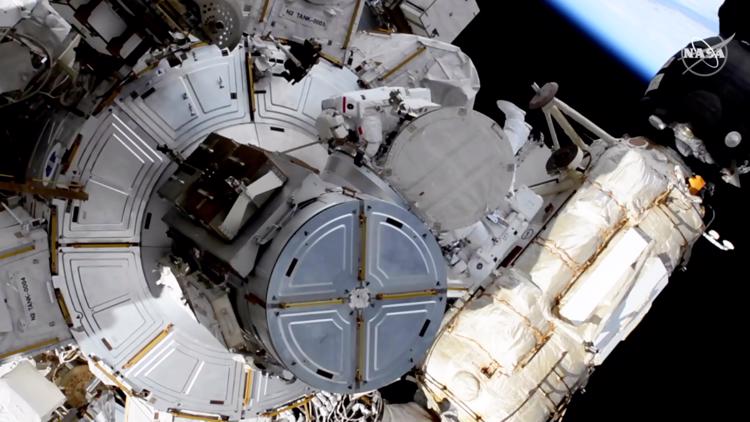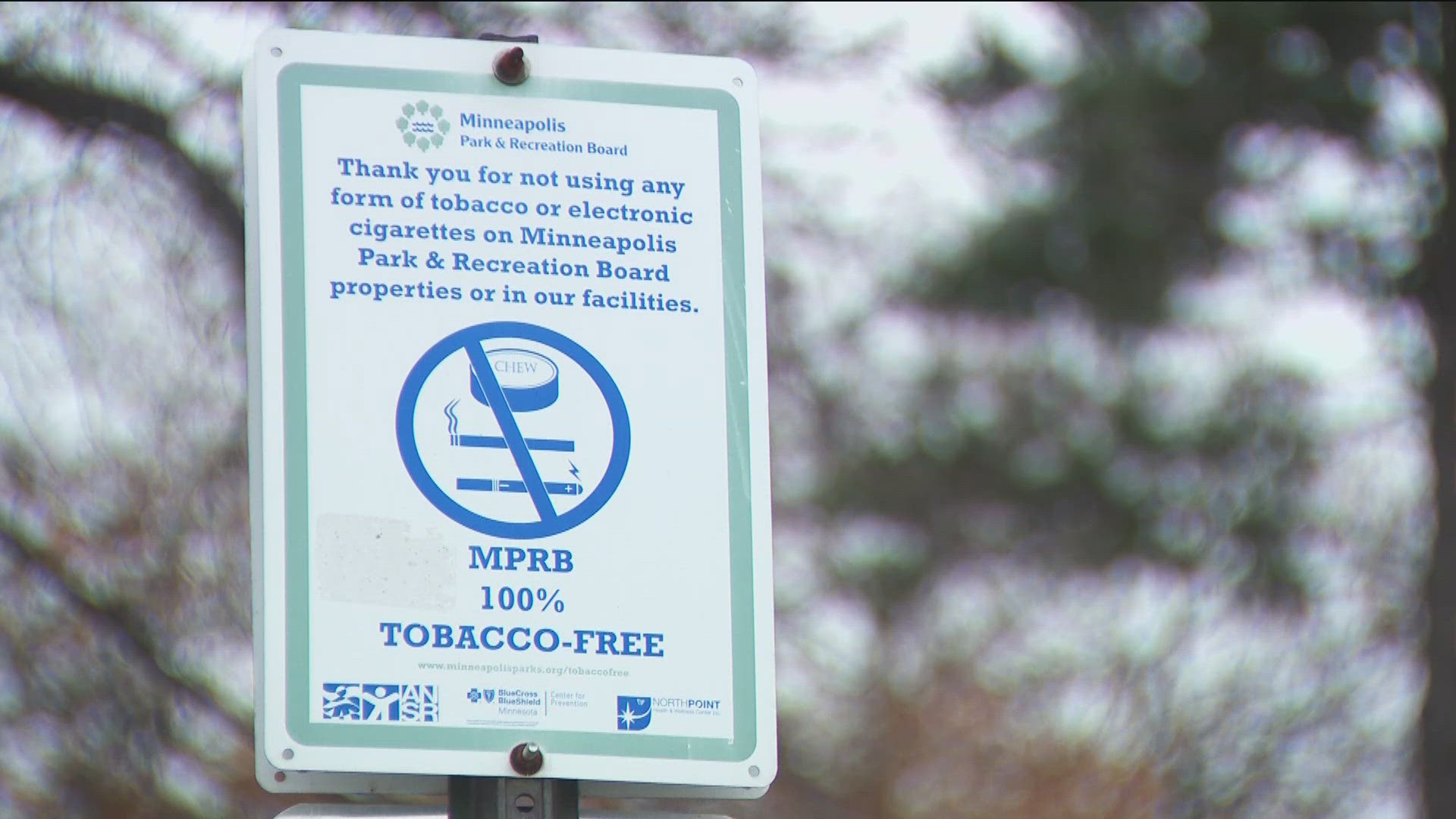CAPE CANAVERAL, Fla — Spacewalking astronauts have installed a powerful new solar panel outside the International Space Station. France's Thomas Pesquet and NASA's Shane Kimbrough picked up Sunday where they left off four days earlier, when spacesuit and other problems interrupted their work. They had to use some muscle, but their efforts paid off Sunday with the new 63-foot panel unfurling all the way. NASA plans a third spacewalk Friday to install a second panel. These new solar wings will give the aging space station a much needed electrical boost, as demand for experiments and space tourists grows.
CAPE CANAVERAL, Fla. (AP) — Spacewalking astronauts equipped the International Space Station with the first in a series of powerful new solar panels Sunday, overcoming suit problems and other obstacles with muscle and persistence.
It took two spacewalks for French astronaut Thomas Pesquet and NASA astronaut Shane Kimbrough to install and unfurl the panel to its full 63 feet (19 meters) in length.
The solar wing unrolled like a red carpet once the final set of bolts was released, relying solely on pent-up energy. The slow but steady extension took 10 minutes, with station cameras providing live TV views.
“It is beautiful,” Pesquet called out.
“Well done, both of you,” Mission Control replied once the operation was complete. “That was great to see.”
As the 6 1/2-hour spacewalk concluded, Kimbrough, who has three children, wished “Happy Father's Day” to all the flight controller dads. “Thanks for working with us on a Sunday."
The astronauts started Sunday’s spacewalk picking up where they left off Wednesday, when a string of problems prevented them from unrolling the high-tech solar panel.
“Remember: You are butterflies with biceps today,” astronaut Megan McArthur radioed from inside.
After pushing and tugging, the spacewalkers managed to unfold and align the solar panel so both halves were now end to end, resembling a roll of paper towels. Their shout of “Woo-hoo!" was met with applause in Mission Control.
The two had to wait until they were back on the night side of Earth — and the station's old solar panels were no longer soaking up sunlight and generating power — before making the final power connections. Otherwise, they could be shocked.
While awaiting darkness, the camera-and-light assembly on Kimbrough's helmet came loose, even though he'd switched to a different suit to avoid the trouble he encountered last time. Pesquet did his best to secure it with wire ties, as the minutes ticked by. His effort paid off, and the final step — the actual unfurling — went off without a hitch.
This new solar wing — with five more to come — will give the aging station a much needed electrical boost, as demand for experiments and space tourists grows.
NASA originally allotted two spacewalks for the job — one for each solar panel being installed. But managers added a third spacewalk, given all the earlier problems. Pesquet and Kimbrough will go back out Friday to complete work on the second panel delivered by Space X earlier this month.
This first pair will augment the space station's oldest solar wings, which are degrading after 20 years of continuous operation.
SpaceX will deliver two more pairs over the next year.
Although smaller than the originals, the new solar panels supplied by Boeing can generate considerably more power. The space station needs this reenergizing if NASA hopes to keep the space station running the rest of this decade, with private guests paying millions of dollars to come aboard.
A Russian film crew is scheduled to launch to the orbiting outpost this fall from Kazakhstan, followed by a string of rich businessmen. SpaceX is providing the rides from Cape Canaveral.
On Wednesday, the display control panel on Kimbrough’s suit conked out and he had to return to the air lock to reset it. Then his cooling system registered a momentary pressure spike. Engineers are still evaluating what went wrong.
“Space is hard,” Kimbrough tweeted last week.
___
The Associated Press Health and Science Department receives support from the Howard Hughes Medical Institute’s Department of Science Education. The AP is solely responsible for all content.



